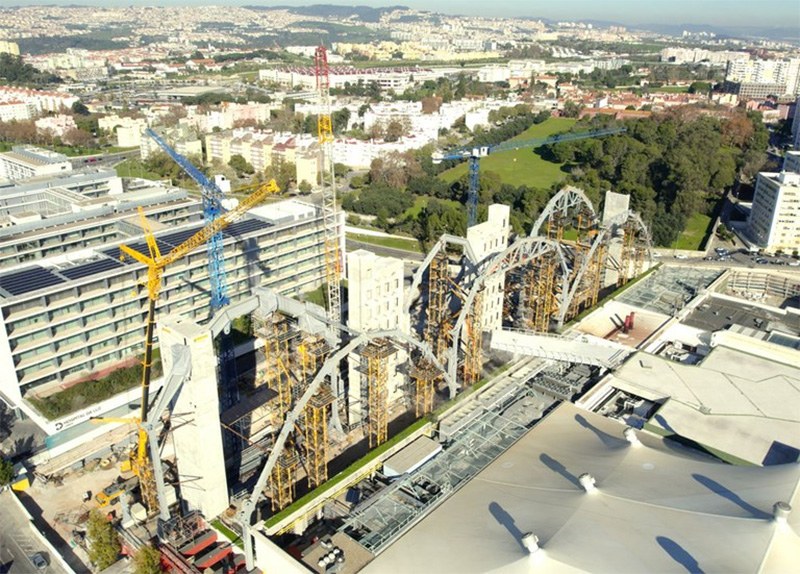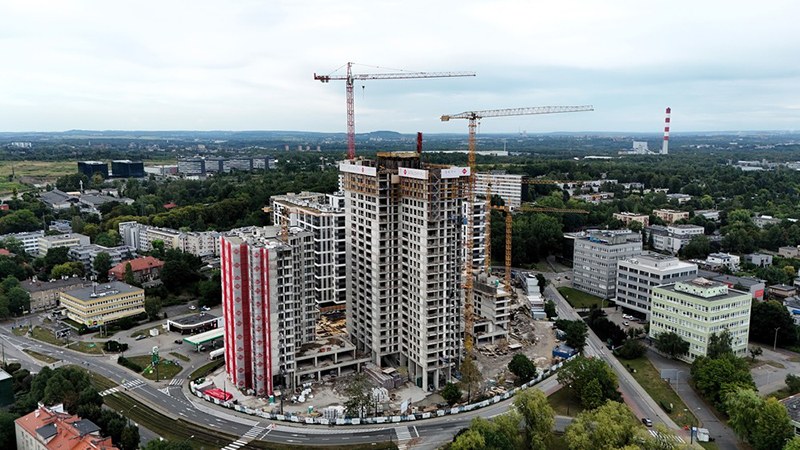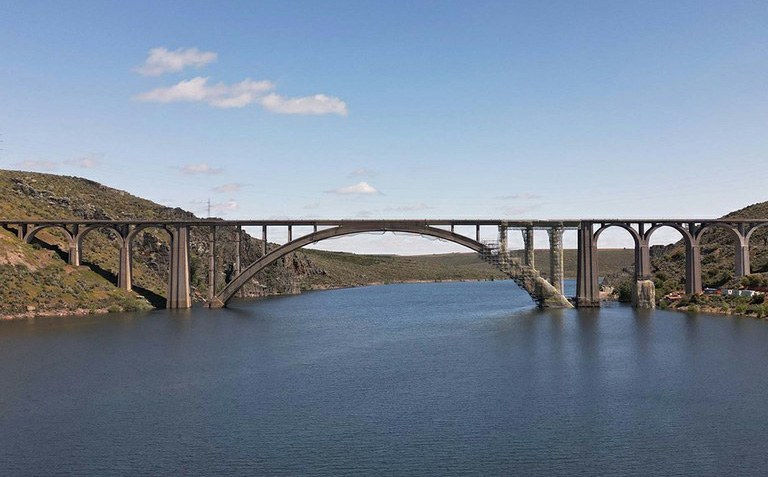Granada Delegation of ULMA Construction tell us of their “corporative” experiences
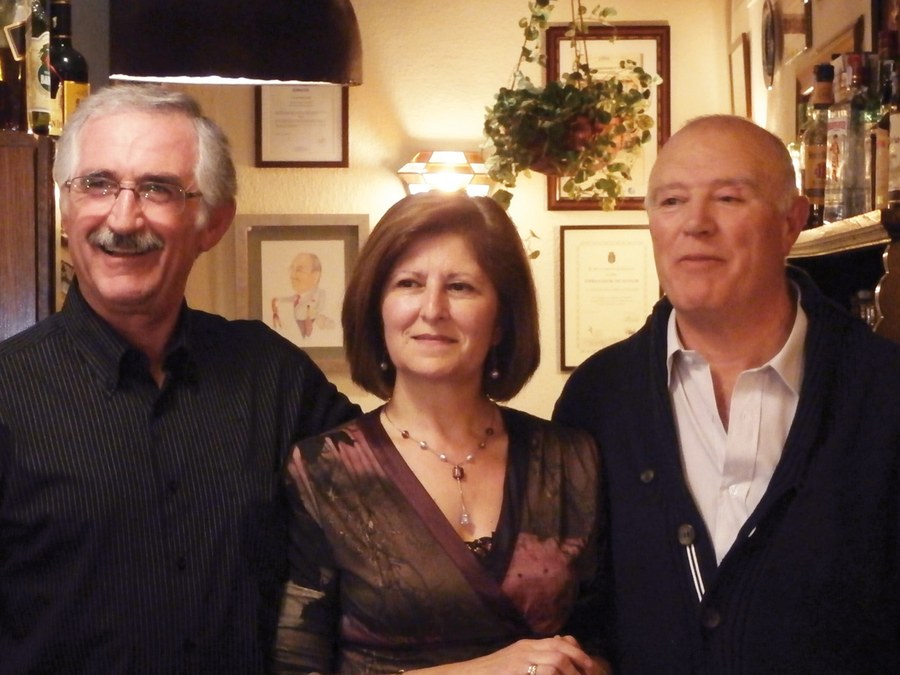
When did you start working in ULMA? how many years have you been in the cooperative?
E.S.: I started working on 6th November of 1976; I have been in the company for 37 years.
J.E.B.: In June 1980.
E.A.: I have been her for 37 years less 17 days. On past 17th January I would have been her for 37 years. I started in January 1977.
And have you been in the same position all these years? Or have you changed?
All my time in the company has not been as a partner, but since the beginning I have felt as if it was something of mine, I felt at home.
>> E.S.
E.S:When I started in 1976 I started in the installations that were in the Azegra Industrial Estate, At Peligro. And later we moved, in June 2001, to the installations that are in Camino Nuevo where the offices continue, in Peligro. Since my youth I have been very involved with the cooperative because the first warehouse that was installed in Granada was a tobacco dry-house that was rented by the first delegate in Granada, Jose Antonio Madina and he rented it from my grandfather. Coincidentally in that period my father was a farmer and, as his work did not offer him much security or stability, they offered the position of warehouse foreman and he started controlling the first warehouse in Granada. Due to that, since I was young, when I went to visit my grandfather, there I saw the scaffolding, the supports, and all the parts that were used then. There was not much variety but that is what was used. Since then I became linked to the company. My father had a small office there where he prepared incoming and outgoing delivery notes when he loaded and unloaded the lorries which I curiously watched him unload and load. When I finished studying COU, an administrative clerk was needed in the new office and that was when I entered and remained until my pre-retirement.
E.A.:I joined as head of assemblies and later I became assembly manager –that was what the pay-slip said- and then foreman. What happened then is that we did everything… I have even assembled a lot of greenhouses. The first multi-tunnel greenhouse that was assembled in Spain was in Arcos de la Frontera, in an area that was called little Holland by some Spanish repatriates from Holland that founded a company. A lot of zenithal windows were assembled that opened simultaneously and I was there assembling with Lazkanoiturburu. We did the greenhouses for some time but then it was done by Agricola who contracted external assemblers and they did it.
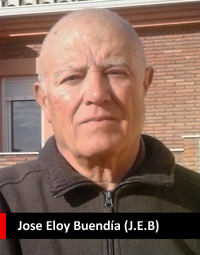
J.E.B.: I am a commercial technician. I was working selling the tubes we sold before, 12 meter tubes, round ones, square ones... for workshops and aluminium for metalwork, windows and everything. After some time a position was free in Granada and they stopped selling tubes and I started working in the construction field. As a commercial technician I sold all the products of ULMA Construction: support posts, systems, and formwork, in other words, everything. I am a street engineer. I like working on the road. For me it was the same selling toys as museum reproductions with my parents when I was young for some time… I love selling, although it took some time getting used to it not knowing the works and the construction, but asking questions and paying attention to what I saw and how I liked the work and the place too, but that was just a question of time.
During all this time, how has ULMA changed? The people, the organisation, the work methods…

E.S.: It has changed a lot. The truth is work is like at the beginning but nowadays the means make work much easier. Before work was very manual and required a lot of effort. Nowadays with the existing means, work is much easier. I started with a typewriter and everything was very rudimentary. To make a phone call we had to ask for a line from the town switchboard and we had to call the operator to have a line to speak with the clients. Later and with time everything was evolving. More or less in the 80’s is when we started working with computers.
J. E. B.: Well, well, well… you just cannot imagine how things have changed! What I have seen. I was writing something here, but what comes out of my brain is healthier and pure. Then I thought the company was mine. But it has changed a lot. It was another way of directing the company, the way of treating people… Now we are more godlike, we believe we are someone, and of course we are, but the way of working before and now is completely different. People have to enjoy. Before people worked Saturdays and Sundays and that was tangible, people lived the cooperative. People came from Oñati to Andalucía, to Granada and they spent hours and hours doing the inventory, etc. they transferred commitment.
Now I have the feeling that people are always looking at the clock. In my area of commercial on the road, thing have changed a lot. I am not saying that the ones working now are not doing it well but before we were all one group and now I have the feeling that each one goes to his own advantage. They do their work and that’s it. That is the sensation I have. I have been on the road, I have worked a lot because I liked my work and I have loved my company. I thought it was mine. I have always commented with my colleague in Almeria, Pepe Garcia, now is the time we have to be on the road even more. We have to have more contact with the clients. Before we did not have so many computers and you had to go round the province day after day... there was contact and you made friends with the clients, you asked about their wife, their children and then when they needed something, who were they going to ask, who were they going buy support posts from, well Pepe!, of course, call Pepe! We took the material and… later I would go round and you can pay me, there was another way of thinking.
E.A.: Well the evolution of ULMA, just imagine! When I started working there were 3 or 4 university graduates. I am just thinking of J.L. Madinagoitia, of J.A. Ugarte, Javier Igartua and little more. All the rest were industrial specialists. Now only in Granada there are more university graduates than what was in all of ULMA and in the delegations we did just about everything. It was the same to assemble scaffolding or lifts. Before there was more cooperative spirit. Now I believe that people are just more comfortable.
And what has working in a cooperative meant for you?
E.S.: I did not join as a member at first. I started working in ALFRE. The workers hired outside of Oñati were hired by ALFRE. Later there were changes, because ALFRE could not hire so many people. The company grew a lot and we were passed to ULMA but as employed workers. In 1989 they proposed to me to join the cooperative and I became a partner. All my time in the company has not been as a partner, but since the beginning I have felt as if it was something of mine, I felt at home. I have felt the cooperative from the very beginning.
J.E.B.: I had never worked in a cooperative and I have liked it. I have enjoyed my work. When they told me I was going to work in a cooperative I thought: all together. There are also some cooperatives that have failed. I remember that there was cooperative here with five partners and the first they did, I will never forget, was to buy a new Citroen BX each one, each one had to have his new car, and in one year it went bust. Here in Andalucía the cooperatives are different, they have another mentality. I believe that the cooperative spirit is lost, and if it remains, there is very little. And I feel sad, I would like the cooperative to continue and become more united. In the good times we were all flat out and we all gained money and in bad times we had to tighten our belts and be more on top of the client, be more constant, in other words, be more on the road.
E.A.: I have always felt part of the company; the truth is I have had much freedom and much responsibility. Nobody has told me what I had to do; I have always assumed my responsibility. I have always been very comfortable and I have taken work as my own, I have never had the sensation of being used, I have always been comfortable in my work, very good.
And after all these years that you have worked in ULMA, how do you value your stay in the company, your record?
E.S: The truth is that it has been quite good. I have had nine delegates as bosses during these years. I have had very good companions and I have always felt backed-up by my colleagues and by my bosses. I have had felt very good at work. Logically, there were moments of tension, like in everything, coexistence is not easy but the environment is important and feeling it is yours and being a partner and that you have something of your own makes your work easier in those periods. I have felt that something belonged to me and, besides developing my work the best I can and with all my responsibility, for me ULMA has been like my second home.
J.E.B.: Very good! Extraordinary. And it is not that I have become a better salesman than I was, but I have studied in the road university, I have enjoyed working in ULMA. I have not had any problems. I have always fulfilled the objectives. The non-payers were important for me; I believe it is something that should be very strictly controlled. It is better to sell less but with security of payment. I have left ULMA and I have the account at zero after 32 years. I have stopped working, and I have felt loved by my company. Experience is a degree, that is why I have tried to learn from people of the cooperative that have been like my parents, you have to listen, see and hear what they say and later apply it on the road, in the company, in your way of thinking...

E.A.: I value my stay in ULMA as very positive. I have developed myself as s person, as a worker, I have made many friends in the company, some are already retired but I would like to recall Javier Galdos, Javier Lizarralde, Javier Zabala, J.L Madinagoitia, J. A. Ugarte, Javier Ugarte, Enrique Zubia, Enrique Urkia, Felipe Vals, Javier Murua, etc. It has been very positive.
What can you say to us who are still working in ULMA?
E.S.: Tray and enjoy yourselves. Work is an effort that we have to do, some people say they enjoy working, yes, but always that you are in a nice environment with good colleagues.
J.E.B.: Do not look at the clock! I have done marathons, half-marathons. Once I fell ill and my doctor told me: forget the clock, do what you have to do, although you arrive half-an-hour late. I would say push harder, be more humble. With more sacrifice by all these bad moments will be overcome. The people still working at ULMA have to keep that spirit, they have to return to that spirit. In the magazine that your distribute and I collect, my colleague and boss then, Enrique Zubia already said, that he reclaimed the cooperative spirit that had disappeared I also reclaim it. It is all about making the company continue forever, that you have employment.
Think that the persons are the most important of the company and that if the persons do not work well things are not going to be good and we have to give 100% to the company.
>> E.A.
E.A.: Well maintain that cooperative spirit. Thank that the persons are the most important of the company and that if the persons do not work well things are not going to be good and we have to give 100% to the company. If the company goes well you do well. If the company goes badly, it will be very difficult for the rest to go well. One has to look for the company and the people that form it. It is true that now there is less work, and the work that is there is not as good as we would like, you contact a job and you do not know if you are happy or not because you do not know if you are going to earn money or not, before you knew you would earn money.
What plans do you have in the future?
E.S.: Well now it seems as if I am on holiday, it has been nearly two months, but I have relaxed at the beginning and little-by-little one starts doing things you like, hobbies you have not had the time for, dedicating my time to my family. Logically, work absorbs too much time and you have to leave the family a little on the side. Now I have to dedicate time for the family, with my parents, who are getting old, mi mother-in-law who is also very old and generally rest a bit. Many people say that when you pre-retire you see yourself as old, but now I feel very well physically and mentally. I have assimilated it very well and hope it continues like that, anyway I already have grandchildren, although my granddaughter is far from me –they live in Madrid- but well, I can visit them when I want and there is another on the way… Before I never had time except at weekends and now I can go and see them.
J.E.B.: I suffered a retinal detachment and I wish that God helps me to recover my sight. My idea is to be at home, and study what I did not study when I could. I like painting and also walking. I am sure that I will not just sit and get bored.
E.A.: The Director told me that now, Aitor Igartua, well, just enjoy yourself… And I said, well I enjoyed myself when I was working.
Would you like to add anything, any experience…
E.S.: Throughout my career, I have been out of the Granada office because on some occasions I have had to visit other work centres because probably they have had to change the administration staff, newly hired people and I have been moved to update or teach work programmes and twice I went to the Canary Islands. Twice, I was in Tenerife teaching the work programmes to some colleagues and I was also in Sevilla with another colleague that started working so I have had some experiences outside of Granada.
The non-payers were important for me, I believe it is something that should be very strictly controlled. It is better to sell less but with security of payment.
>> J.E.B.
J.E.B.: I grew–up on the road and I have seen a lot. I remember that the delegate accompanied me to Linares to see a client and I have always liked studying the shoes of people... When we arrived I saw the client was wearing patent-leather shoes, and I thought patent-leather shoes on a work site, that’s bad… And they were plastic. I said to the delegate… this guy is going to fail on us! We sent him 1000 support post and with the first payment he started prognosticating, and in the end they threw him of the works… I told the delegate, see how his shoes told me… I study people’s shoes, there are people that want to show-off with their shoes, and you cannot show-off with shoes…
E.A.: Once José María Arizmendiarrieta told me that we were a lot of people in the company to push and that there are very few that pull, and we have to help those to pull harder. People that are able to see beyond what the others see to create new things, to innovate. And lastly, I would to wish you good luck to the General Director of ULMA Group, Iñaki Gabilondo, that he makes good decisions because I am sure he will need it. Although decisions are taken with the best intention, sometimes that is not sufficient, one has to have luck.





